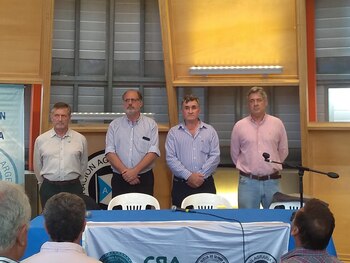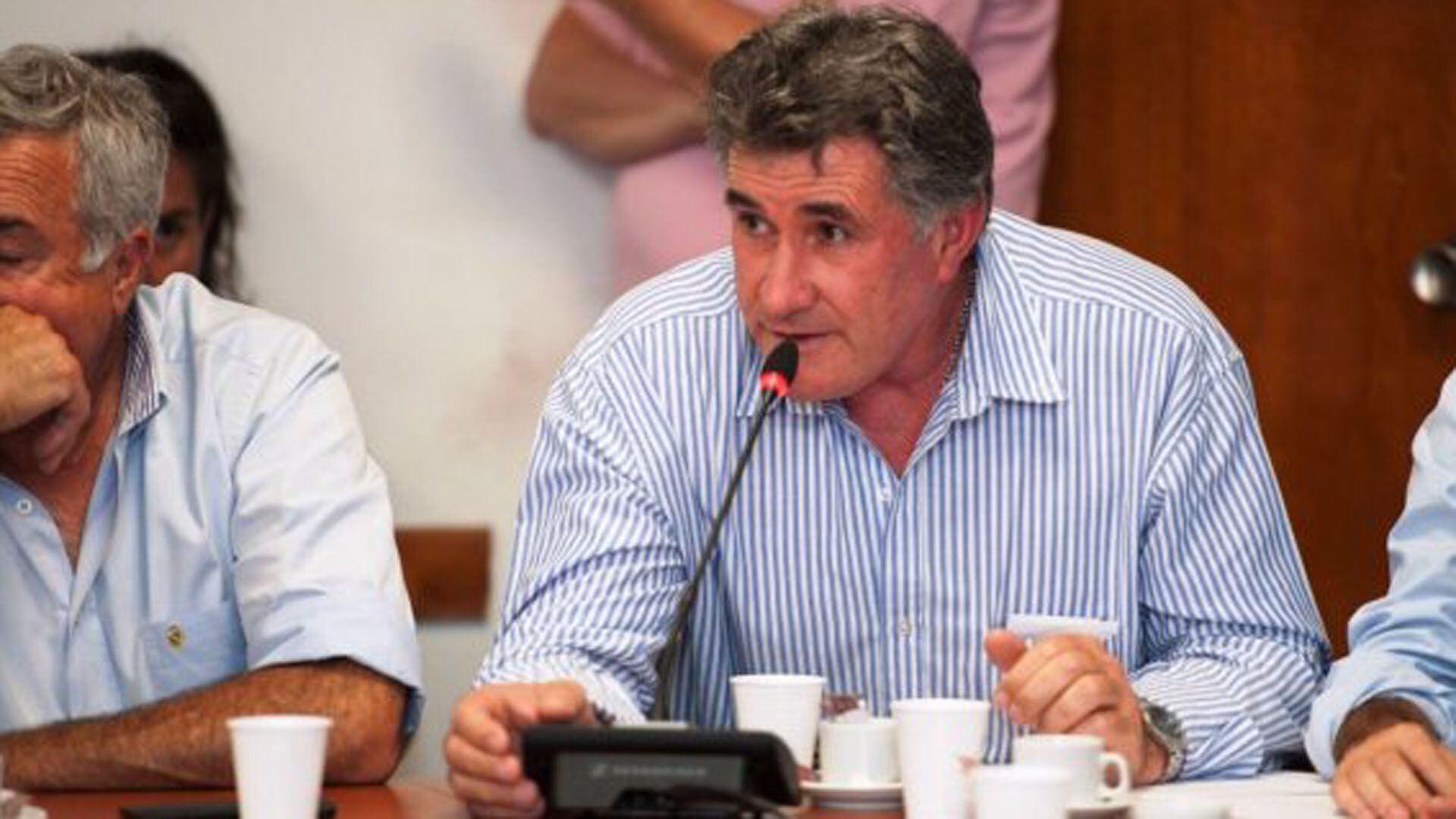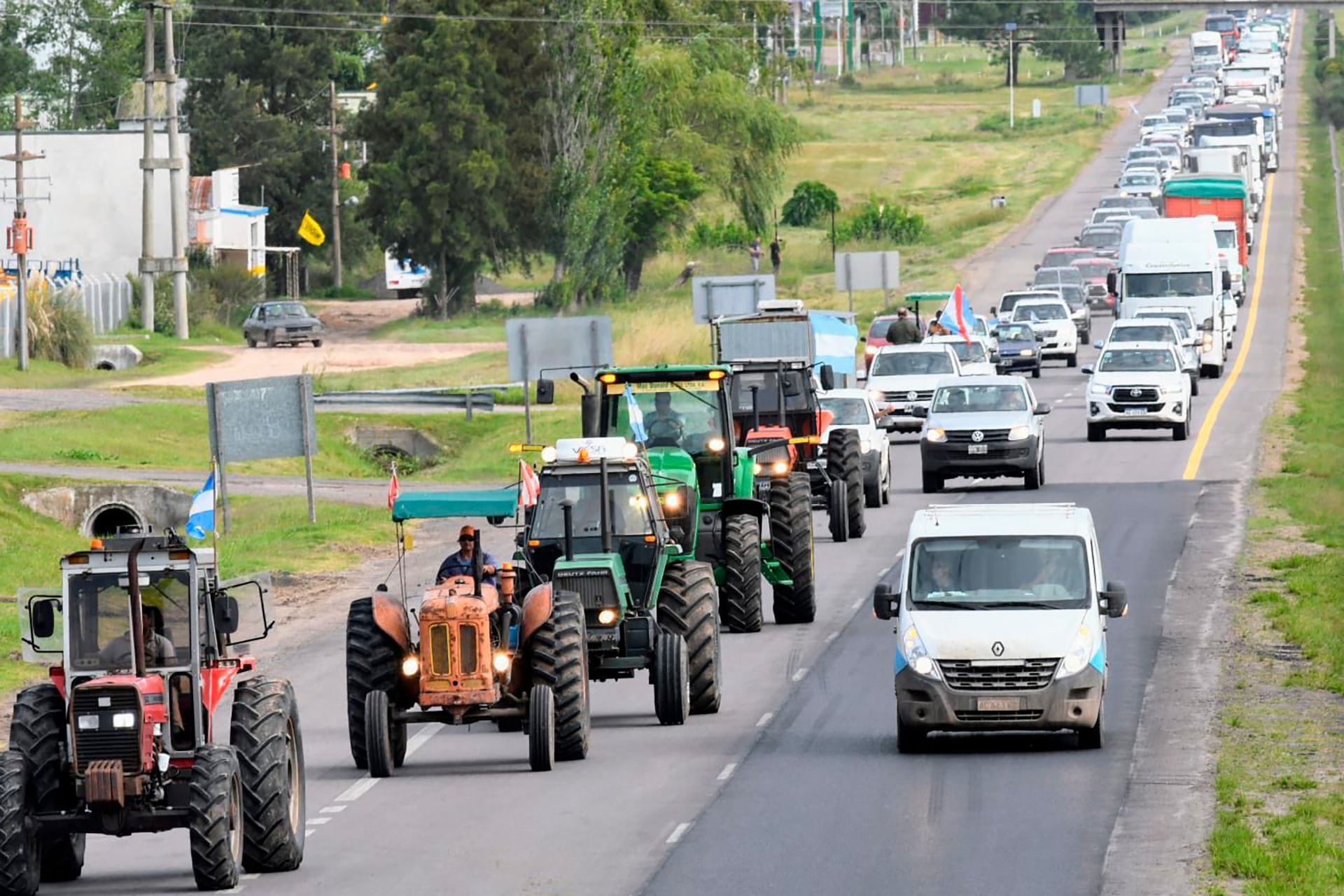
While the unrest in the productive interior is increasing due to official policies towards the countryside, the leaders of the Liaison Table are betting their strategy on Congress to raise the issue of withholding. At the same time, they analyze the results of the assemblies and mobilizations that took place in recent days, to define union actions.
Tomorrow the presidents of the four rural entities will land in the Congress of the Nation, to hold different meetings with deputies. A few days ago they sent political blocs with legislative representation a request for a hearing, amid the demand for “Institutional Order” for legislation on the subject of withholdings. From that moment on, work has been done to set up an activity that will finally take place in the next few hours.
According to this media outlet, the meetings of the representatives of the camp with the legislators will begin at 10am with the members of the blocks of deputies led by Javier Milei and José Luis Espert, at 12 noon with the representatives of Together for Change, and at 3pm it will be the turn of the Federal Peronism. So far, no response to the request for a meeting sent to the Frente de Todos has reached the leaders. It also transpired that there would have been an intention of the president of the Chamber of Deputies, Sergio Massa, to meet with the Liaison Table, but this has not been confirmed so far.
The idea of the Liaison Table is with these meetings to raise the need for Congress to legislate on withholding. They consider that the latest increase in the tax on soy by-products is illegal, since they argue that on 31 December the power of the government to modify the rates expired and since it was not extended, the leaders maintain that the current withholdings are 0%. In fact, the Argentine Rural Society and the Rural Society of Jesus María filed an amparo in the federal courts of Córdoba. Tomorrow the lawyer who advised the entities will be present at the meetings in Congress.
Regarding the retentions and Congress, after the government announcements last weekend, more than fifty National Deputies of Juntos for Change accompanied the project of Deputy Alejando Cacace (UCR Evolución — San Luis) for Congress to reject the decree presented by President Alberto Fernández whereby increases export duty rates for soybean oil and flour to 33%. In a statement, the deputy promoting the claim explained: “Congress cannot guarantee that the executive branch increases taxes under old rules that have already been declared unconstitutional. The intervention of Congress is necessary and in this case, it is necessary to reject Decree 131/22″.

“We are living in an outlaw, incorrect situation and we want to install this. To do this, we will meet with the largest number of bloc chiefs in Deputies, so that they debate and define, but along this line we are going to go, that each one fulfills their role and responsibilities,” assured the president of the Argentine Rural Society, Nicolás Pino, adding: “A part of this government will always see the countryside as the enemy ideal and appetizing and as a permanent collection box. The Russia-Ukraine war greatly strains the situation around the world. Argentina has the obligation and responsibility to endure this ugly moment, producing more.”
For his part, Carlos Achetoni, head of the Argentine Agrarian Federation, said that the meetings in the Congress will be to “seek solutions and alternatives that do not end in more confrontation, because this hurts all Argentines. We need the sector to begin to have adequate agricultural policies that encourage, that give certainty and predictability to invest, and in the case of the smallest producers, and regional economies, that give us strength to continue fighting and producing in our places.”
That is why in the issues that the leadership of the Liaison Table will raise, in addition to withholding, there is an agenda of pending issues, such as the Wetlands Act, the amendment to the current Seed Law, the updating of the Agricultural Emergency Fund, and the design of a Multi-Risk Insurance Law, among others. It should be remembered that the Chamber of Deputies also contains for its treatment the Law on Agro-Bioindustrial Development, which is promoted by the Government with the Argentine Agro-Industrial Council, and since mid-2020 there is the project that promoted the government on the increase of penalties for cases of rural insecurity.
This afternoon, the members of the Liaison Table will meet, to finish defining the strategy for tomorrow, and on the other hand, begin to analyze the results of the assemblies and mobilizations that took place in recent days in districts of the provinces of Buenos Aires, Santa Fe, Córdoba and Entre Ríos, where the bases of producers are in a state of alert and mobilization, and are asking the national leadership for concrete trade union actions: mobilization of the Federal Capital and agricultural strike, among others.

Producers are mobilized not only to express rejection of the latest measures announced by the Government, but also the permanent change in the rules of the game, intervention in markets and high tax pressure. To all this we must remember that the picture remains complex in many areas of the country, as a result of drought and fires, with significant losses in the productive and economic aspects.
Although so far the Liaison Table has not commented on the trade union steps to be taken, it is not ruled out in the area of ruralism that there is a call for a national mobilization. Yesterday producers in southern Entre Ríos asked the presidents of the entities to set the day, place and time for a large call for producers in order to express the rejection of official policies.
KEEP READING:
Últimas Noticias
Debanhi Escobar: they secured the motel where she was found lifeless in a cistern

The oldest person in the world died at the age of 119

Macabre find in CDMX: they left a body bagged and tied in a taxi
The eagles of America will face Manchester City in a duel of legends. Here are the details

Why is it good to bring dogs out to know the world when they are puppies




